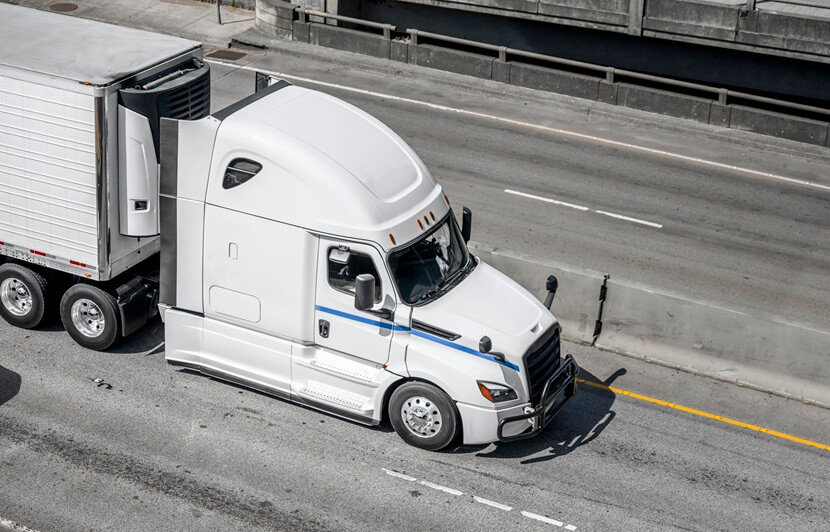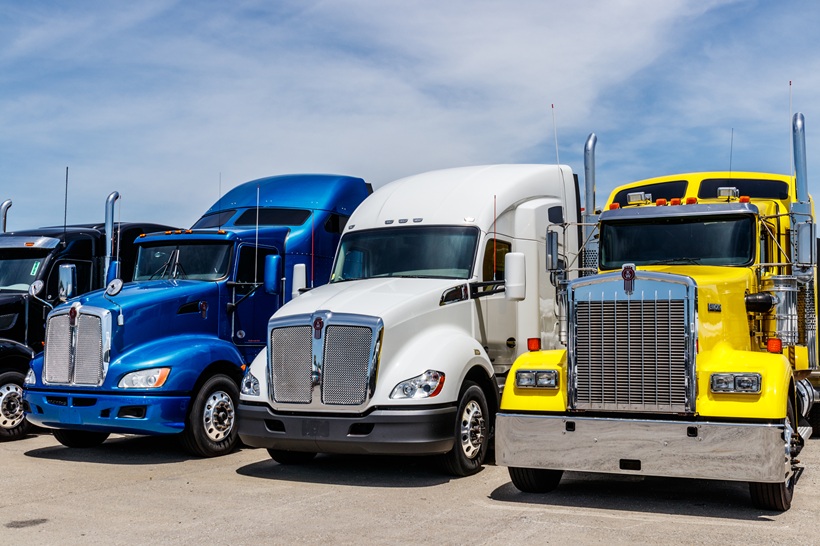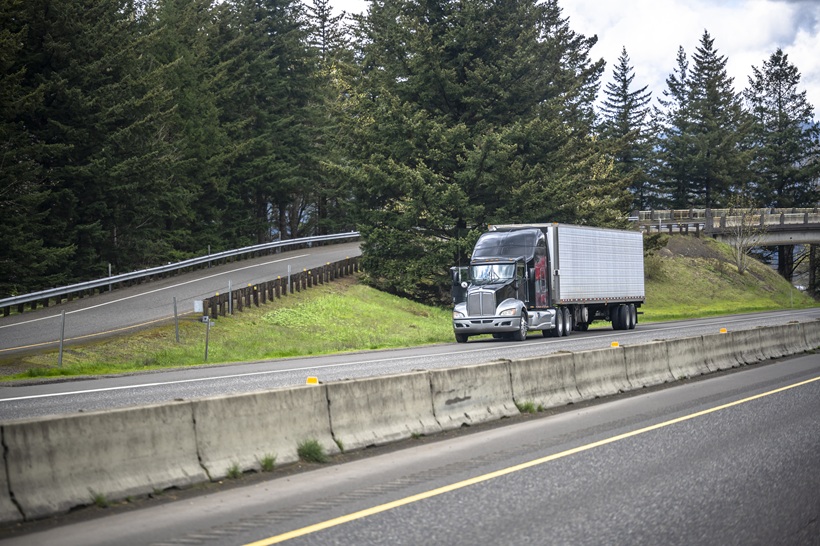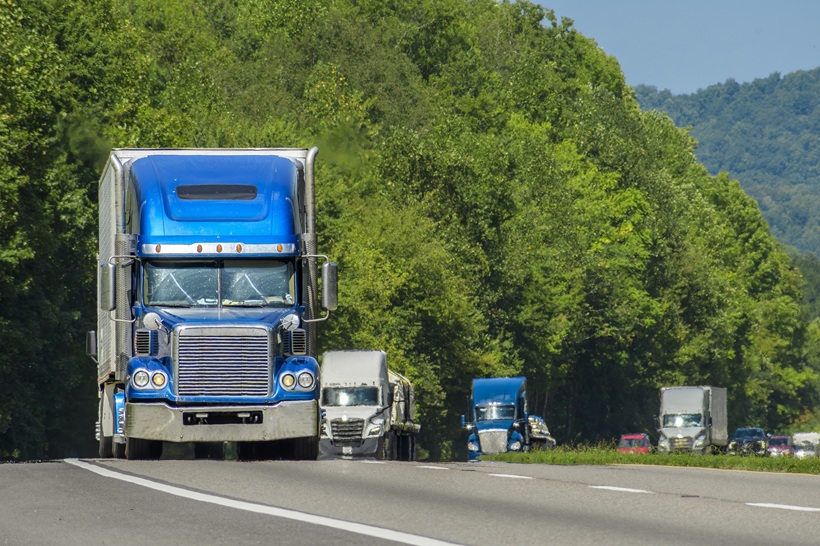
What New Roles is AI Ready to Play in the Trucking Industry?
From streamlining business processes to unlocking previously unimaginable innovations, discussions about new technology have become nearly synonymous with AI developments.
Yet, while excitement around AI abounds, it’s accompanied by concerns about economic upheaval and workforce displacement. Despite these uncertainties, one thing is clear: AI is not just a disruptor—it’s an enabler of innovation.
The trucking industry is no exception. As carriers and brokers strive for efficiency and resilience, AI is playing a growing role in transforming how loads are moved, managed, and delivered. In this blog, we’ll explore the new roles AI is ready to play in trucking and how these advancements are affecting the industry’s future.
AI and safety: Enhancing driver assurance
Technology showcased at the recent Consumer Electronics Show in Las Vegas highlighted the future of fleet safety.
Among the advancements are prominent in-cab digital displays and systems providing 360-degree visibility, designed to eliminate blind spots and enhance situational awareness for drivers. Using onboard cameras to replace traditional side mirrors, these systems provide comprehensive views around the vehicle, including the truck’s sides, the area in front of the grille, and the trailer’s surroundings.
The move toward software-defined vehicles (SDVs) is also transforming safety. One platform shown at CES allows manufacturers to design advanced driver-assistance systems.
Predictive maintenance: Keeping fleets on the road at less cost
Maintenance has traditionally been a regimented process, based on mileage or time intervals. However, with AI-driven predictive maintenance, fleets can shift from reactive repairs to proactive care, ensuring maximum uptime and better utilization of assets.
Predictive maintenance uses real-time data and analytics to anticipate equipment failures before they happen. Unlike preventive maintenance, predictive maintenance leverages sensor data, telematics, and historical patterns to optimize repairs. This data-driven approach identifies potential failures weeks in advance, giving fleet managers the opportunity to schedule repairs on their terms.
By detecting changes from baseline performance, solutions trigger maintenance alerts for specific issues, such as brake wear and tire underinflation. These insights are then used to prioritize tasks, extend vehicle lifespan, improve safety outcomes, and even prevent compliance violations during inspections. Additionally, AI predictive maintenance can help optimize systems like engine cooling, suspension, and aerodynamics, resulting in significant fuel savings that help fleets combat rising operating expenses.
Back-office automation
Automation solutions are modernizing processes like document handling, invoicing, and workflow management by eliminating manual, time-consuming tasks. This platform leverages AI-powered tools such as data extraction and intelligent document grouping, allowing teams to process documents faster and with greater accuracy.
Unlike traditional systems, AI solutions can handle complex or unstructured documents, significantly reducing errors and the need for human intervention. This streamlining of tasks shortens billing cycles and minimizes invoice lag, leading to improved liquidity and faster speed to cash. By reducing operational costs and increasing efficiency, brokers, carriers, and factors can allocate resources more strategically, ensuring financial stability while freeing up staff to focus on higher-value tasks.
Back-office automation is a game-changer, and we’re excited to share more about its potential in the weeks ahead.
AI broker bots: Innovation or unnecessary disruption?
AI’s role in trucking continues to evolve, but not all advancements are met with universal enthusiasm. One controversial development is the use of AI-powered bots in freight brokerage communication. These bots, driven by agentic AI, autonomously handle complex logistics tasks, from making inbound and outbound calls to negotiating rates and capturing data.
For freight brokerages, this technology offers significant advantages. By automating repetitive tasks, AI bots can reduce call times, cut operational costs, and provide 24/7 availability. Brokers can redirect their time and effort toward higher-value activities like building relationships with carriers and shippers.
Despite these benefits, the rise of broker bots has sparked concerns. Some fear that such technologies could bypass brokers altogether, enabling shippers to do business directly with carriers. Others argue that AI will amplify the capabilities of forward-thinking brokers, and those unwilling to adapt may find themselves left behind.
AI and the growing potential for fraud
Criminals and fraudsters are adapting to technological advancements, using tools like voice AI to imitate individuals and perpetrate fraud. For example, some bad actors use AI to impersonate drivers, provide false tracking updates, or reroute stolen freight, adding a new layer of sophistication to traditional scams.
AI-powered fraud doesn’t operate in isolation, though. It often complements long-standing methods, such as phishing attacks and fake carrier profiles, making it harder for industry professionals to detect. Cyber-enabled cargo theft and AI-driven phishing campaigns are expected to rise in 2025, according to the National Motor Freight Traffic Association. These attacks exploit vulnerabilities faster and more intelligently than ever, posing new challenges to fleet operators and brokers.
However, the same technology enabling fraud can also be harnessed to fight it. Predictive AI and machine learning can also analyze data to flag suspicious behavior and improve fraud detection. These tools can evaluate patterns, identify red flags during carrier or broker onboarding, and adapt over time to changing criminal tactics.
The industry’s defense lies in a multilayered approach: combining AI with human oversight, implementing robust cybersecurity measures, and fostering ongoing employee training.
Driving toward an AI-enhanced future
As the trucking industry embraces AI, it’s clear this technology is changing operations for many key roles. While challenges remain, the opportunities AI presents are immense. By leveraging these advancements responsibly and proactively, carriers, brokers, and other industry players can not only adapt to change but thrive in a more efficient, resilient, and innovative future.
TL;DR
AI is transforming trucking across multiple areas with both opportunities and challenges. Key developments include: (1) Enhanced safety through in-cab digital displays, 360-degree camera systems replacing mirrors, and software-defined vehicles eliminating blind spots, (2) predictive maintenance using real-time data to anticipate equipment failures weeks in advance, optimizing repairs and preventing costly breakdowns, (3) back-office automation streamlining document processing, invoicing, and workflows with AI-powered data extraction for faster billing cycles, (4) controversial AI broker bots that autonomously handle calls and rate negotiations—offering efficiency gains but raising concerns about bypassing human brokers entirely, and (5) dual-edged fraud implications where criminals use voice AI for sophisticated scams, but the same technology can detect suspicious patterns and improve fraud prevention.



